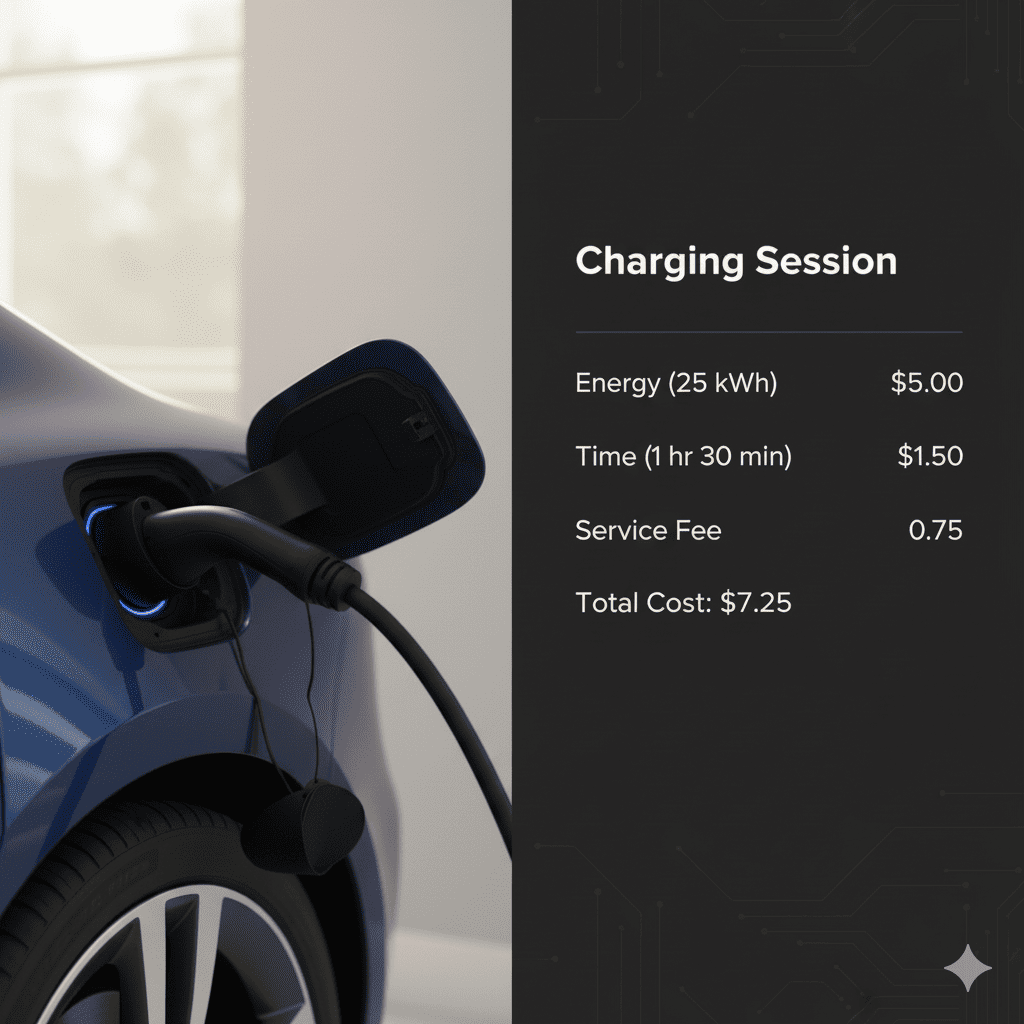As more Indian homeowners switch to electric vehicles (EVs), installing a home EV charger is becoming an important step — not just for convenience, but for smarter, sustainable mobility. That said, the cost of setting up a home charger can vary significantly based on your location, the charger type, electrical readiness of your home, and additional features.
Here’s an updated guide for 2025 — what to expect, what to budget for, and key factors that affect cost.
Typical Cost Breakdown (2025)
Based on recent market surveys in India:
Component Typical Low-End Cost Typical High-End Cost
Charger unit (wall-mounted AC 3.3–7.4 kW) ~ ₹ 25,000 Up to ₹ 1,00,000 (smart/connected models)
evblogs.in
+2
evdrivepulse.com
+2
Installation & wiring labour ~ ₹ 2,500 – ₹ 10,000 Higher if wiring is complex, long distance or multiple phases
evblogs.in
+1
Power supply upgrade (sanctioned load, meter, etc) ~ ₹ 8,000 – ₹ 20,000 Depending on home condition and load upgrade needed
evblogs.in
+1
Solar integration (optional) ~ ₹ 40,000 – ₹ 1,20,000+ If you add rooftop solar + charger integration
evblogs.in
Total Estimated Cost (Standard Setup) ~ ₹ 35,000 – ₹ 90,000 (without solar)
evblogs.in
+1
Total Estimated Cost (With Solar / Premium) ~ ₹ 1,00,000 – ₹ 2,20,000+
evblogs.in
For example, one source summarises:
“For a standard Level 2 charger (including installation): ₹ 35,000–₹ 90,000.”
evblogs.in
Another puts it slightly more conservatively:
“₹ 12,000 to ₹ 85,000” depending on equipment and wiring.
evdrivepulse.com
Thus, your budget should begin around ₹ 30,000-₹ 40,000 for a basic home wall-mounted charger in a reasonably ready home, and scale upwards depending on features & upgrades.
What Affects the Cost?
Here are the key factors that will impact how much you pay:
Charger type and power rating: A 3.3 kW charger will cost less than a 7.4 kW or higher-capacity unit. Smart features (Wi-Fi, app control, load balancing) add extra cost.
Electrical infrastructure of your home: If your current setup supports the charger easily (single-phase supply, adequate load), cost remains lower. But if you need to upgrade load, install new meter, wiring, protective devices (MCBs, earthing), this adds.
evblogs.in
Distance from meter to parking spot: Longer run of cable / conduit/civil work adds cost. In apartments the path from meter room to parking bay may be complex and more expensive.
Price India
+1
Brand & warranty of charger: Premium brands and smart models cost more upfront.
Extras like solar-integration or dedicated meter: If you add rooftop solar or a separate meter for your EV charging, cost goes up but may pay off over time.
evblogs.in
+1
Local labour/civil work costs: In major cities or premium localities, installation labour may cost more. For example: in Jaipur, labour could be ₹3,000–₹15,000 depending on location.
evcarcharging.in
State/subsidy/incentive eligibility: Some states offer rebates or reduced tariffs for EV charging home installations. These can reduce net cost.
evblogs.in
+1
Example Scenario: Jaipur (2025)
From a local breakdown for Jaipur:
Device cost for 3.3–7.4 kW charger: ~ ₹ 25,000 – ₹ 75,000
evcarcharging.in
Installation labour: ~ ₹ 3,000 – ₹ 15,000 depending on wiring complexity.
Additional electrical equipment (MCB, earthing etc): ~ ₹ 3,000 – ₹ 10,000.
Total estimated cost: ~ ₹ 31,000 – ₹ 1,01,000 for typical home installation in that region.
evcarcharging.in
Is It Worth It?
Yes — installing a home EV charger pays off in multiple ways:
Overnight charging convenience: No waiting at public charging stations.
Lower running cost: Charging at home costs less per unit than many public stations. For example, home charging rates ~ ₹ 6-10/kWh in 2025 vs higher at public stations.
whatech.com
+1
Enhanced property value: Homes with EV-charging infrastructure become more attractive.
Future-proofing: With EV adoption growing in India, early setup means being ready.
Key Tips Before You Install
Get a site inspection: A professional (like CharzeUp) should assess your meter, supply, distance, earthing and suggest required upgrades.
Choose a charger that matches your vehicle’s connector type and your home’s electrical capacity.
Consider future needs: If you plan an EV upgrade or multiple vehicles, install a higher-power charger now if your home supply allows.
Use a certified installer: Poor wiring or DIY can void warranty, cause safety issues.
evblogs.in
Check for incentives in your state: Some states offer reduced electricity tariffs for EV charging or subsidies for installation.
Plan cable routing carefully: Especially in apartments/gated societies, ensure society approval, safe conduit routing, and minimal visual/civil impact.
Keep maintenance in mind: Regular inspection and maintenance prolong the charger’s life and performance.
Final Thoughts
For 2025 in India, you should budget roughly ₹ 35,000–₹ 90,000 for a standard home EV charger installation (AC 3-7 kW) in a ready home. If you add premium features, solar integration or major electrical upgrades, the cost can go beyond ₹ 1 lakh — even up to ₹ 2 lakh or more in some cases. Having the right setup, done properly, ensures safe, efficient, and convenient EV charging right at your home.
